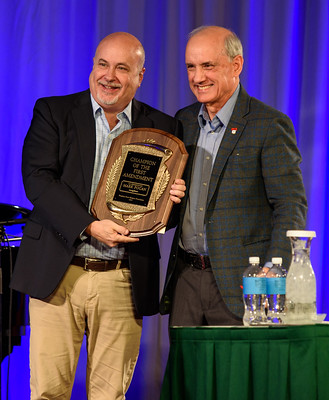 U.S. Representative Mark Pocan represents Wisconsin’s 2nd congressional district, FFRF’s home of Madison, Wis. He serves on the House Appropriations Committee and is a member of numerous caucuses, including the Congressional Freethought Caucus. Prior to becoming a U.S. representative, he served 14 years in the Wisconsin Assembly and owned a small printing business. Pocan received FFRF’s Champion of the First Amendment Award. Photo by Chris Line.
U.S. Representative Mark Pocan represents Wisconsin’s 2nd congressional district, FFRF’s home of Madison, Wis. He serves on the House Appropriations Committee and is a member of numerous caucuses, including the Congressional Freethought Caucus. Prior to becoming a U.S. representative, he served 14 years in the Wisconsin Assembly and owned a small printing business. Pocan received FFRF’s Champion of the First Amendment Award. Photo by Chris Line.
November 1, 2019

